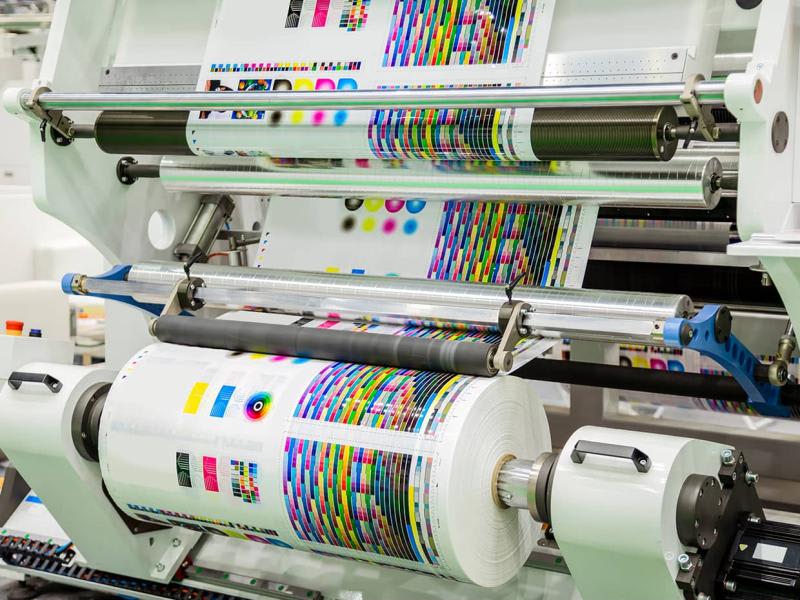In the manufacturing industry, strategic tax planning plays a pivotal role in driving financial success and ensuring long-term sustainability.
Manufacturers face unique challenges and opportunities regarding tax compliance, cash flow management, and leveraging incentives for innovation and growth.
RSM Australia, part of the global network RSM International, offers tailored audit, tax, and consulting services to various industries, including manufacturing.
RSM offers a comprehensive suite of services to the manufacturing industry including:
- Transaction advisory: Helping in M&A lead advisory, debt advisory, due diligence, valuations, tax advisory, and financial modelling, guiding manufacturers from growth and funding stages to business sale.

- Data analytics: Offering insights into manufacturing chains, including business process improvement, customer growth, data management, and more.
- Transfer pricing: Assisting manufacturers with international related party sales and supply chains.
- R&D: Helping clients access potential R&D tax offsets for implementing new technology in manufacturing processes or developing new/improved products, processes, and equipment
- Software: Providing advice on the appropriate digital ecosystem for manufacturers, including NetSuite and ERP solutions for those requiring more advanced platforms for cost accounting, inventory, and other manufacturing accounting needs.
- Management reporting: Offering customised management reporting and dashboarding to provide better business oversight and insights for manufacturing business owners and managers.
Business advisory Principal at RSM Australia, Ross Dixon, emphasises the significance of fundamental business principles and forward-looking strategies in navigating an evolving economic landscape.
“Considering recent economic changes, such as interest rate rises and fluctuations in trading conditions, understanding consumer confidence is more crucial than ever for businesses,” he explained.
“Rather than solely focusing on tax minimisation, businesses should prioritise taking a forward-looking approach and consider the broader health of their operations.”
Strategic Planning
Manufacturers can benefit from a range of tax incentives designed to stimulate innovation and investment in the industry.
For example, Research and Development (R&D) tax incentives provide opportunities for manufacturers to offset costs associated with developing new products, processes, and technologies.
By leveraging R&D tax incentives, manufacturers can enhance their competitive edge, drive innovation, and fuel growth.
“Notably, engaging in the R&D tax incentive and maintaining ongoing capital investment may provide greater access to grant opportunities as they arise, including those from both state and federal governments,” said Dixon.
One of the key challenges manufacturers often face is managing tax liabilities effectively.
By effectively managing the variety of tax obligations, manufacturers can reduce the burden that tax can have on cash flow, freeing up resources for growth and innovation.
Manager at RSM Australia, Thomas Leslie, highlighted the importance of addressing superannuation and employee obligations, considering the increased compliance activities and penalties in these areas.
By staying proactive and ensuring compliance, manufacturers can mitigate risks and optimise their tax positions.
"At the forefront of current discourse in tax compliance is the topic of superannuation, where there are significant efforts to enhance compliance,” said Leslie.
"Taking proactive steps with superannuation has led to favourable outcomes for businesses – employment expenses make up a significant portion of input costs for manufacturers."
Getting tax compliance right is crucial for businesses during a period of increasing complexity and heightened focus by the ATO on tax and superannuation compliance.
Effectively navigating tax liabilities helps manufacturers adhere to tax laws and avoiding possible reviews and fines.
Proactive tax planning is essential for manufacturers to minimise tax liabilities and optimise cash flow.
This involves carefully considering the year-to-date performance of the business, identifying available deductions and credits, and implementing strategies to optimise the income tax position.
“Generally, the best kind of outcomes we see, is when manufacturers have engaged with us throughout the year and particularly during the tax planning process,” said Dixon.
“What we're emphasising is the heightened aggressiveness and proactive stance of the ATO in pursuing small business debt, including interest charges.
“Additionally, it's crucial to prepare a budget and cash flow projections for the upcoming financial year to anticipate potential fluctuations in working capital that may arise.”
Subsequently, this would enable proactive strategizing to secure funding from banks or negotiate extended payment terms with suppliers, effectively managing cash flow fluctuations throughout the year.
“We strongly recommend that manufacturers align their reporting framework and finance function with the business's needs to allow for clear data-driven decision-making by management,” said Dixon.
“We would encourage business leaders to meet with their advisor to review what the tax obligations might look like for the financial year.”
Leslie added that setting business targets and financial goals is an important step in optimising cash flows.
"An essential element of optimising business performance and improving cash flows is creating clear goals during the planning process,” he said.
“Clients we see excel are those who are adept at taking action and achieving tasks whilst striving towards their clearly defined objectives.
“Target setting not only contributes to the establishment of a reporting framework but also provides a benchmark for business performance to be assessed against."
The adoption of technology can play a crucial role in streamlining tax processes and optimising financial management.
Advanced software solutions, such as enterprise resource planning (ERP) systems and data analytics tools, enable manufacturers to automate accounting processes, track expenses, and generate insights for informed decision-making.
By embracing technology, manufacturers can enhance efficiency, accuracy, and transparency in tax reporting and compliance.
Optimising supply chains is another key aspect of strategic tax planning for manufacturers.
By streamlining supply chain processes, manufacturers can reduce costs, improve efficiency, and minimise tax implications related to inventory management, procurement, and logistics.
Inventory and Work-in-Progress figures should be continually monitored as part of a standard financial reporting framework to allow for both management data and an accurate tax forecast for the financial year.
Implementing best practices in supply chain management enables manufacturers to achieve greater financial agility and resilience in an increasingly dynamic market.
Manufacturers operating in global markets must navigate complex international tax regulations to ensure compliance and minimise tax risks.
International tax compliance involves understanding a variety of complex themes including cross-border tax implications, transfer pricing rules, and international tax treaties.
By partnering with tax advisors with expertise in international taxation, manufacturers can effectively manage their tax obligations while expanding into new markets and driving global growth.
“With a presence in 120 countries, our firm leverages the extensive expertise of our member firms to achieve significant successes in tax and business outcomes,”
“Collaborating with our member firms on both ends of transactions has enabled us to deliver strong client outcomes.”
Strategic end of financial year planning is critical for manufacturers to optimise financial performance, minimise tax liabilities, and achieve sustainable growth.
By understanding tax incentives, proactively planning, leveraging technology, optimising supply chains, and ensuring international tax compliance, manufacturers can unlock their full financial potential and thrive in today's competitive manufacturing landscape.
FOR MORE INFORMATION
If you would like to learn more about the topics discussed in this article, please contact Ross Dixon.
This article was originally featured in Manufacturers Monthly. To view the article, please click here.





